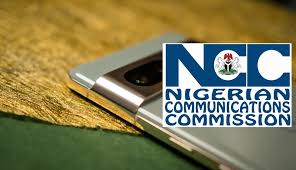The recent announcement by telecoms regulator, the Nigerian Communications Commission (NCC), on the implementation of a Device Management System (DMS), designed to block fake, cloned, and stolen phones from accessing Nigeria’s mobile networks, is to a large extent protecting the market environment for Original Equipment Manufacturers (OEMs).
The system, which has been in development for nearly a decade, will track mobile devices through their International Mobile Equipment Identity (IMEI) numbers across the country’s telecommunications networks.
The initiative follows Nigeria’s recent nationwide migration to the NINAuth digital ID verification platform, demonstrating the country’s commitment to modernizing its telecommunications infrastructure.
Operating through a Public-Private Partnership (PPP) framework, the DMS marks a significant step in regulating Nigeria’s telecommunications device market.
The initiative addresses the prevalent issue of counterfeit and unregistered phones in the country, where estimates indicate that up to 40% of mobile devices and tech gadgets are fake or substandard.
The challenge mirrors similar issues faced by other African nations, such as Uganda, which recently launched its own “Simu Klear” system to address counterfeit devices.
According to the NCC, the implementation will proceed gradually to minimize disruption to legitimate users. “Substandard and fake devices can be prevented from connecting to the networks due to the harmful impact these devices have on the quality of services and online safety of the users,” the Commission stated.
The IMEI-based tracking system builds on successful implementations in other regions, where similar technology has been used to recover lost and stolen devices.
The widespread presence of counterfeit devices in Nigeria has been attributed to various economic factors, including inflation, unemployment, and reduced purchasing power, which have led consumers to seek cheaper alternatives despite associated safety and security risks.
The risks include potential exposure to malware and security vulnerabilities, similar to recent incidents where banking trojans have targeted Android users through counterfeit applications.
The Executive Vice Chairman, NCC, Dr. Aminu Maida, has made the DMS initiative a key part of his broader regulatory agenda, which emphasizes protecting telecom assets and improving network quality.
The system supports the Commission’s focus on transparency, accountability, and infrastructure protection in Nigeria’s telecommunications sector, which serves over 200 million people.
The effort complements other recent security initiatives in the country, including PalmPay’s multi-layered security strategy to combat digital payment fraud.
The DMS implementation features several key components, including IMEI-based device identification and blocking capabilities, integration with existing network infrastructure, and coordination between public and private sector stakeholders to ensure effective enforcement.
The comprehensive approach reflects the growing importance of mobile device security in an era where authentication methods are rapidly evolving to counter sophisticated cyber threats.








